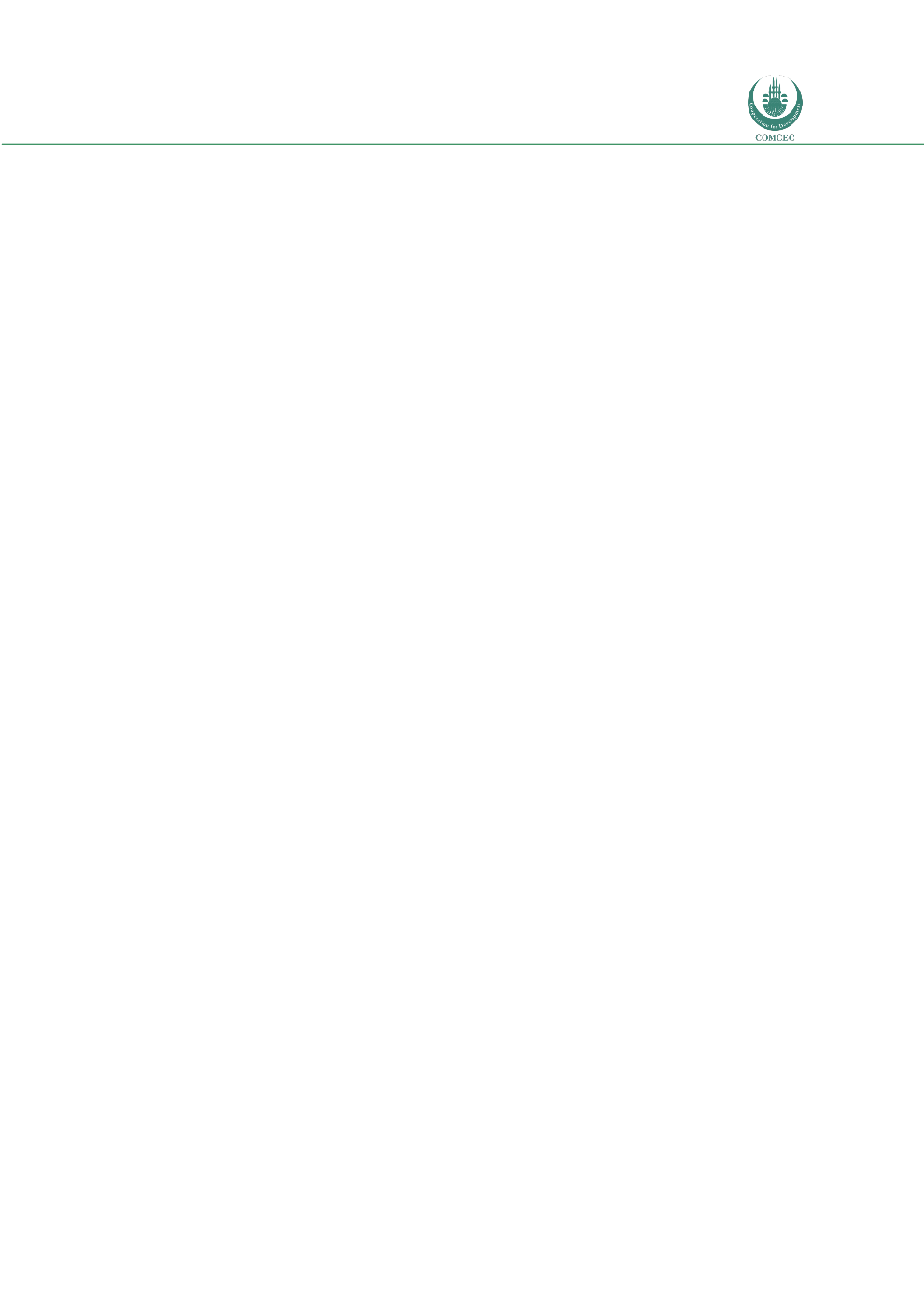

Risk Management in
Islamic Financial Instruments
45
3.1.3 Securities Infrastructure
The International Organization of Securities Commission, BCBS and International Association
of Insurance Supervisors published a report on asset securitization incentives in July 2011.
The report included three recommendations: better transparency, standardized documents
and less complex products, and standardization in global markets and sectors. The goals were
to reduce information symmetries and increase liquidity. Two other reports by the IOSCO
advocated for better cross border harmonization and development and regulation of investors
in emerging markets. Such recommendations would apply to the Sukuk market in Islamic
finance as well as efforts within the Islamic finance industry to improve cross-border activity
and regulation for Shariah-compliant products (IFSB 60-61).
3.1.4 Insurance Infrastructure
The International Association of Insurance Supervisors provides a platform for insurance
supervisors to exchange ideas and information. In October 2011, the
Insurance Core Principles,
Standards, Guidance and Assessment Methodology (ICP)
were revised to improve global
insurance supervision. Changes included a new principle on macro-prudential surveillance and
the creation of a stronger linkage between IAIS standards and assessment criteria. The IFSB
included some of the revised standards, especially in regards to corporate governance, in its
own recommendations in ED-14:
Standard on Risk Management for Takaful (Islamic Insurance)
Undertakings
. In July 2012, a draft called the Common Framework for the Supervision of
Internationally Active Insurance was produced to improve supervision of multinational
insurance groups (IFSB 62).
3.1.5. National Financial Architecture and Infrastructures of Selected
Countries
Islamic financial institutions in all countries other than Iran and Sudan co-exist with their
conventional banking counterparts in common regulatory frameworks. However, different
jurisdictions have additional legal requirements to support Islamic finance.
3.1.5.1 Malaysia
Malaysia has formed a national Shariah Advisory Council at both the central bank and the
securities commission levels which act as the ultimate authority for Shariah matters pertaining
to Islamic finance. Islamic finance is regulated by a set of laws aimed at different operations,
and are presented as follows:
Islamic Banking:
Islamic Banking Act 1983
Banking and Financial Institutions Act 1989

















